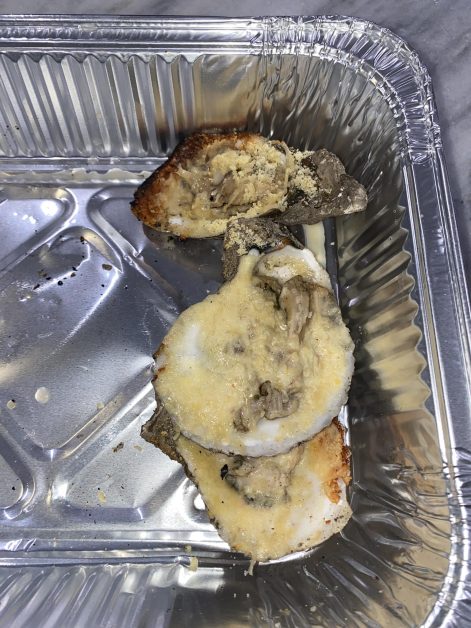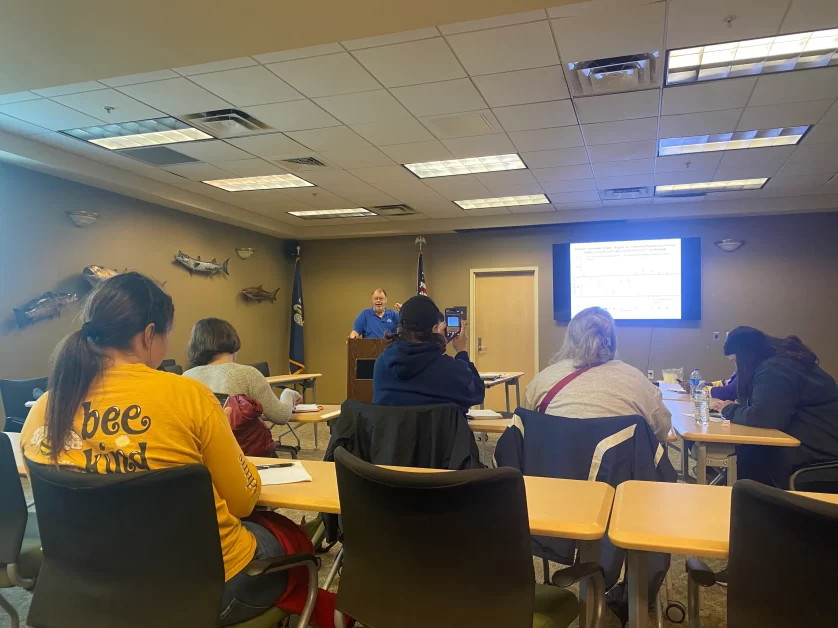The first time I tried an oyster, let’s say it didn’t go well. I was a kid in my grandmother’s kitchen in South Louisiana, where fresh oysters were a regular treat. Someone had brought a sack of Louisiana oysters from Grand Isle, and my family was gathered around, shucking and slurping like pros. My aunt encouraged me to try one. Hesitantly, I slurped it down—and immediately decided oysters were not for me.
It would take me another twenty years before I considered giving raw oysters another shot.

Discovering the Magic of Cooked Louisiana Oysters
While raw oysters initially weren’t my thing, cooked oysters turned out to be a game-changer. My dad introduced me to baked oysters at Mike Anderson’s, and they were absolutely divine. The buttery richness, the perfect seasoning—it was love at first bite. If I had to choose a last meal, it would be a never-ending platter of those baked oysters.
Not long after, I dared to try fried oysters at Bozo’s, a neighborhood spot in Metairie, Louisiana, and they were nothing short of perfection. Crispy, golden, and tender inside, they completely changed my perception of oysters. Suddenly, I began to wonder: had I been too quick to write off oysters as a whole?
Falling in Love with Raw Oysters
Eventually, I worked up the courage to try raw oysters again. This time, it was with friends who raved about their briny, fresh flavor. Something about the experience felt different—maybe it was the camaraderie, or perhaps it was how perfectly they were shucked and served on ice. One slurp, and I realized what I’d been missing all those years.
Raw oysters, as it turns out, are the ultimate fast food: quick, fresh, and oh-so-delicious.
Now, I can’t get enough of them. Whether they’re fried, baked, charbroiled, or raw, oysters have become one of my favorite foods. I’ve even become something of an oyster evangelist, sharing my newfound love with family and friends.
But as my love for oysters grew, I started to see them as more than just a delicious indulgence.
Louisiana oysters are vital to the state, not just as a culinary icon but as a cornerstone of our environment, culture, and economy.
Why Louisiana Oysters Matter
Oysters aren’t just another seafood option in Louisiana—they’re a lifeline for the state’s coastal ecosystems and communities. These unassuming mollusks pack a powerful punch when it comes to their environmental, cultural, and historical significance.
Environmental Importance
Oysters play a massive role in supporting and sustaining Louisiana’s fragile coastal environment:

- Natural Water Filters: A single oyster can filter up to 50 gallons of water every day, removing pollutants and improving water quality for all marine life.
- Coastal Protection: Oyster reefs act as natural barriers, reducing erosion and protecting coastal communities from storm surges and flooding.
- Marine Habitats: Oyster beds provide critical habitats for fish, shrimp, crabs, and other marine species, creating thriving ecosystems that support Louisiana’s fishing industry.
Louisiana oysters are even used in coastal restoration projects, as their reef structures stabilize sediment and help rebuild eroded shorelines. In many ways, oysters are nature’s engineers, working quietly beneath the waves to maintain the health of Louisiana’s estuaries.
Cultural and Historical Significance
Louisiana’s relationship with oysters goes back more than 200 years, making them an essential part of the state’s identity:
- Culinary Heritage: From charbroiled oysters dripping with butter at Drago’s to fried oysters served at neighborhood joints like Bozo’s, oysters are a hallmark of Cajun and Creole cuisine. They appear on tables during celebrations, festivals, and quiet family dinners, tying generations together through shared traditions.
- Economic Backbone: The oyster industry generates over $180 million annually in Louisiana, supporting thousands of jobs in farming, harvesting, processing, and distribution. Coastal towns often host oyster festivals, which not only celebrate the industry but also boost tourism and strengthen local economies.
- Historical Legacy: Early settlers in Louisiana began cultivating oysters by transplanting them from reefs east of the Mississippi River to more favorable areas on the western side. This practice improved both growth and flavor, laying the foundation for Louisiana’s oyster farming industry. And it goes beyond being from South Louisiana: every group that has immigrated to the region has left their mark on the industry.
Oysters are more than just food in Louisiana—they’re a cultural touchstone, representing resilience, adaptability, and the resourcefulness of the people who have called this state home for centuries.
The Threats Facing Louisiana’s Oysters
Despite their importance, oysters—and the coastlines they help protect—face mounting challenges:
- Climate Change & Ocean Acidification: Rising water temperatures and increasing CO2 levels weaken oyster shells, making them more vulnerable to disease and predators.
- Salinity Fluctuations: Oysters thrive in brackish water, but wetland erosion and freshwater influxes can upset the delicate balance of salinity they need to survive.
- Sedimentation: Excess sediment from storms or human activity can bury oyster beds, making it harder for oysters to grow and filter water.
These challenges are compounded by Louisiana’s rapidly disappearing coastline, which loses the equivalent of a football field of land every 90 minutes. Without oysters and the reefs they form, the state’s environmental and economic future would be at even greater risk.
A Nerdy Family’s Dive into Louisiana Oyster Culture
As a nerdy family, we love geeking out about the things we’re passionate about—whether it’s Star Wars or the culinary traditions of South Louisiana. That’s why we were thrilled to spend a weekend learning about oysters with the Louisiana Sea Grant Oyster Research Lab in 2023.

Located on Grand Isle, the lab gave us a behind-the-scenes look at how oysters are farmed and why they’re so important to Louisiana’s culture and economy. We learned about:
- Triploid Oysters: These oysters are bred to grow faster and larger, making them ideal for hot Louisiana summers when traditional oysters would spawn.
- Disease-Resistant Strains: Researchers are developing stronger oysters to combat the environmental challenges facing today’s reefs.
- Restoration Efforts: Oyster reefs are being used to stabilize shorelines, protect against erosion, and create habitats for marine life.
It was inspiring to see the blend of science and tradition in action, ensuring that oysters remain a vital part of Louisiana’s landscape for generations to come.
Passing Down a Love for Oysters
For our family, oysters are more than just food—they’re a way to connect with our Cajun heritage and teach our kids about the importance of protecting what we love. We’ve started sharing stories about shucking oysters in my grandmother’s kitchen and introducing our child to the joy of charbroiled oysters at local favorites like Drago’s.
The little one hasn’t developed a taste for them, but she does like decorating them.

It’s not just about oysters; it’s about preserving Louisiana’s culture, environment, and traditions.
Protecting Louisiana’s Natural Bounty
Whether it’s our favorite fandoms or the natural bounty of South Louisiana, we believe in protecting the things we love. Oysters represent the best of Louisiana: resilience, community, and the ability to thrive despite challenges.
The next time you enjoy a plate of charbroiled oysters or slurp down a dozen raw on the half shell, take a moment to appreciate the work—and the science—that goes into bringing them to your table.
Because at the end of the day, Louisiana oysters are more than just food—they’re a tradition worth celebrating and protecting.
About The Author
Discover more from NolaNerdCouple.com
Subscribe to get the latest posts sent to your email.
